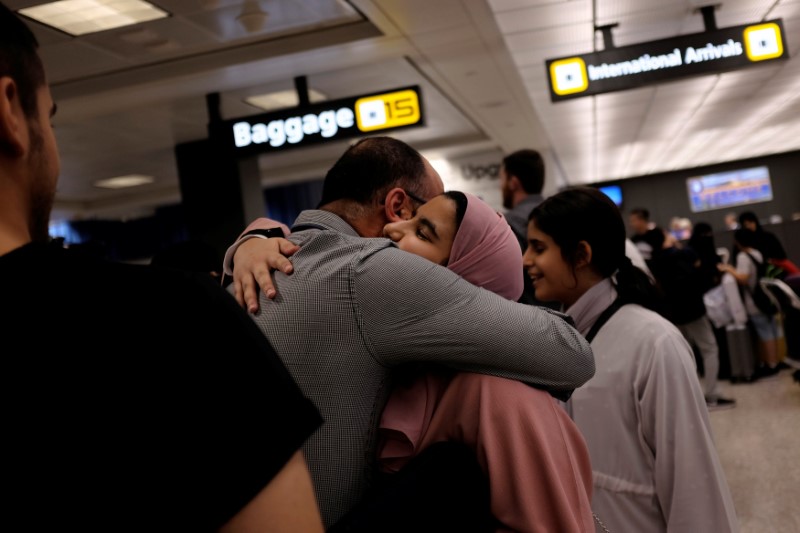By Andrew Chung and Yeganeh Torbati
WASHINGTON (Reuters) - The Supreme Court's criteria for who can be barred from entering the United States under President Donald Trump's travel ban may confuse the U.S. officials overseas charged with implementing it and trigger a new round of lawsuits, experts said.
People with a "bona fide relationship with a person or entity" in the United States are spared from the temporary ban affecting people from six Muslim-majority countries and all refugees that the justices on Monday allowed to go partially into effect.
"There's no precedent for something like this that I'm aware of," said Jeffrey Gorsky, a former legal adviser to the State Department's Visa Office, referring to the new "bona fide" standard.
Gorsky said the standard is likely to sow confusion among U.S. consular officials who have to make visa decisions and could require another court decision to determine what constitutes a connection to the United States sufficient to allow entry.
The Supreme Court agreed to decide the legality of Trump order in its next term, which begins in October. Justice Clarence Thomas argued that the court should have granted Trump's request to implement the travel ban in full while the legal fight continues.
"Today's compromise will burden executive officials with the task of deciding - on peril of contempt - whether individuals from the six affected nations who wish to enter the United States have a sufficient connection to a person or entity in this country," Thomas wrote, joined by two fellow conservative justices.
In Monday's ruling, the high court gave a few examples of connections that qualify. For individuals, a close family relationship is required.
Bona fide connections to entities, it said, must be "formal" and "documented." That would include students who have been admitted to a U.S. school and workers who have accepted an offer of employment from an American company, the court said. It noted that Trump's executive order already allowed for case-by-case waivers for people with connections to the country.
On the other hand, the justices said, relationships created for the purposes of evading the travel ban will not be considered valid. For instance, an immigration agency cannot add foreigners to client lists "and then secure their entry by claiming injury from their exclusion."
The March 6 order called for a 90-day ban on travelers from Libya, Iran, Somalia, Sudan, Syria and Yemen and a 120-day ban on all refugees to enable the government to implement stronger vetting procedures. Trump cited national security concerns as the reason for the order.
LITIGATION PREDICTED
Stephen Legomsky, chief counsel for U.S. Citizenship and Immigration Services under former President Barack Obama, said lawsuits could claim that a bona fide relationship was ignored.
While Legomsky said he believes the vast majority of cases will be clear cut, courts will have to determine whether visiting a close friend or taking part in a wedding could also qualify.
"In theory, you could say if somebody is coming for tourism and has made a reservation for a hotel, there's now a U.S. interest in bringing them to the United States. The hotel is a U.S. entity," Gorsky said.
Some lawyers also said the vagueness of the "bona fide" standard was license for the Trump administration to interpret it broadly.
"It's just like a green light to the government to do what it wants to do," said Kiyanoush Razaghi, a Maryland-based immigration attorney who deals with primarily Iranian clients. "Who is going to tell us what is the definition of 'bona fide relationship?'"
The difficult job of judging foreigners' claimed connections could land back in the lower courts in Maryland and Hawaii that had originally blocked Trump's travel ban, said Stephen Vladeck, a professor University of Texas School of Law.
"We could have dozens of these cases between now and September," Vladeck said, adding that the Supreme Court would not be likely to weigh in on them on a case-by-case basis.
David Martin, a former U.S. Department of Homeland Security official and now a professor at the University of Virginia, said the ruling was "carefully tailored" and should be manageable for officials to enact.
Part of the reason, Martin said, is the case-by-case waiver process that was already envisioned in the executive order.

"I think there will be some litigation over the extent of the reach of this bona fide relationship but I don't think it will be as burdensome as the dissenters suggest," Martin said.